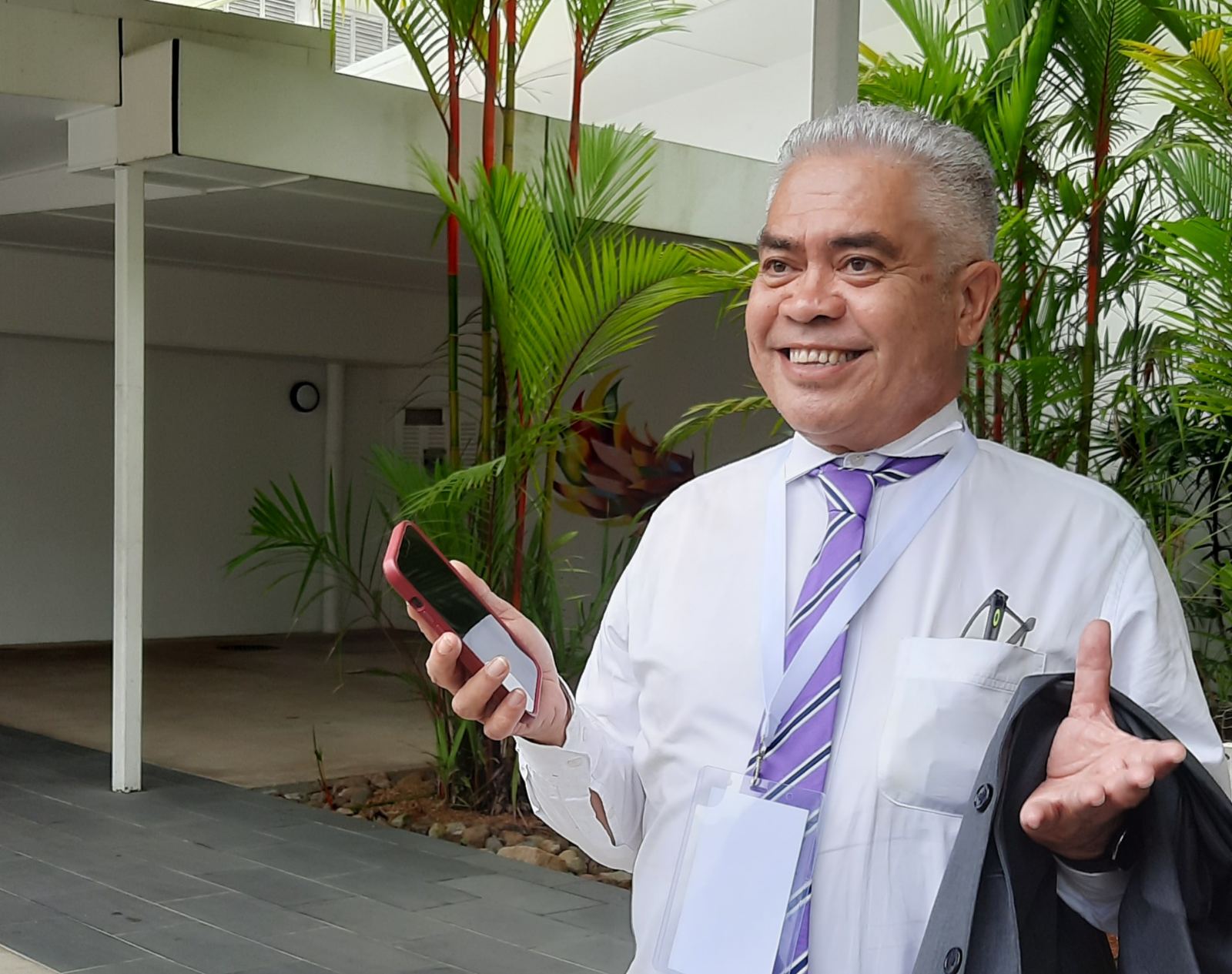Separation of the powers between the three branches of Government is an ideal that cannot be applied as strictly in practice as people think.
Suva lawyer Jon Apted said this while commenting on a paper by Australian Senior Counsel Arthur Moses at the Fiji Law Society Convention 2023 at the Pearl Resort in Pacific Harbour yesterday.
Mr Apted said in recent weeks, there had been loud complaints from certain quarters saying the coalition Government was not complying with the separation of powers.
“Some of the criticism may be justified, some of it is not,” he said.
Mr Apted said the difficulty, as identified in Mr Moses’ paper, with complying strictly with the separation of powers was particularly acute in Westminster systems of government, like ours.
“The executive is elected out of Parliament and the executive sits in Parliament.
“The membership and the appointment procedures for the three branches overlap considerably.
“The doctrine is about the separation of powers, so it’s really focused on exercise of the powers of the branches remembering the appointment of members of the three branches involves overlap with the other branches.”
Mr Apted highlighted that the President was the Head of the executive, the Prime Minister was the Head of Cabinet – the effective executive – and the President was elected by the legislature from nominations from the PM and the leader of the Opposition.
He said it was curious that under the 2013 Constitution, when the President was away, it was the Chief Justice who became acting President.
He said in 2001, there was a constitutional crisis because certain judges were alleged to have advised the then president on how to deal with parliament as a result of the 2000 takeover.
“Now we have a situation where the head of the judiciary is acting as the head of the executive branch.”
Mr Apted said as was the case on December 24, 2022, the PM was elected on the floor of Parliament and he picked his ministers from the Members of Parliament.
The one exception, the Attorney-General, who could be a non-MP appointed by the President on the advice of the PM, if a suitable person could not be found in Parliament.
In this case, the A-G would sit in Parliament as an unelected MP by right under the doctrine of responsible government, which was recognised under the 2013 Constitution.
“This concept (responsible government) which comes from the Westminster system is the way the law and our Constitution keeps the executive accountable to the people through their representatives in Parliament.
“Ministers must appear in Parliament and before committees to answer questions.”



